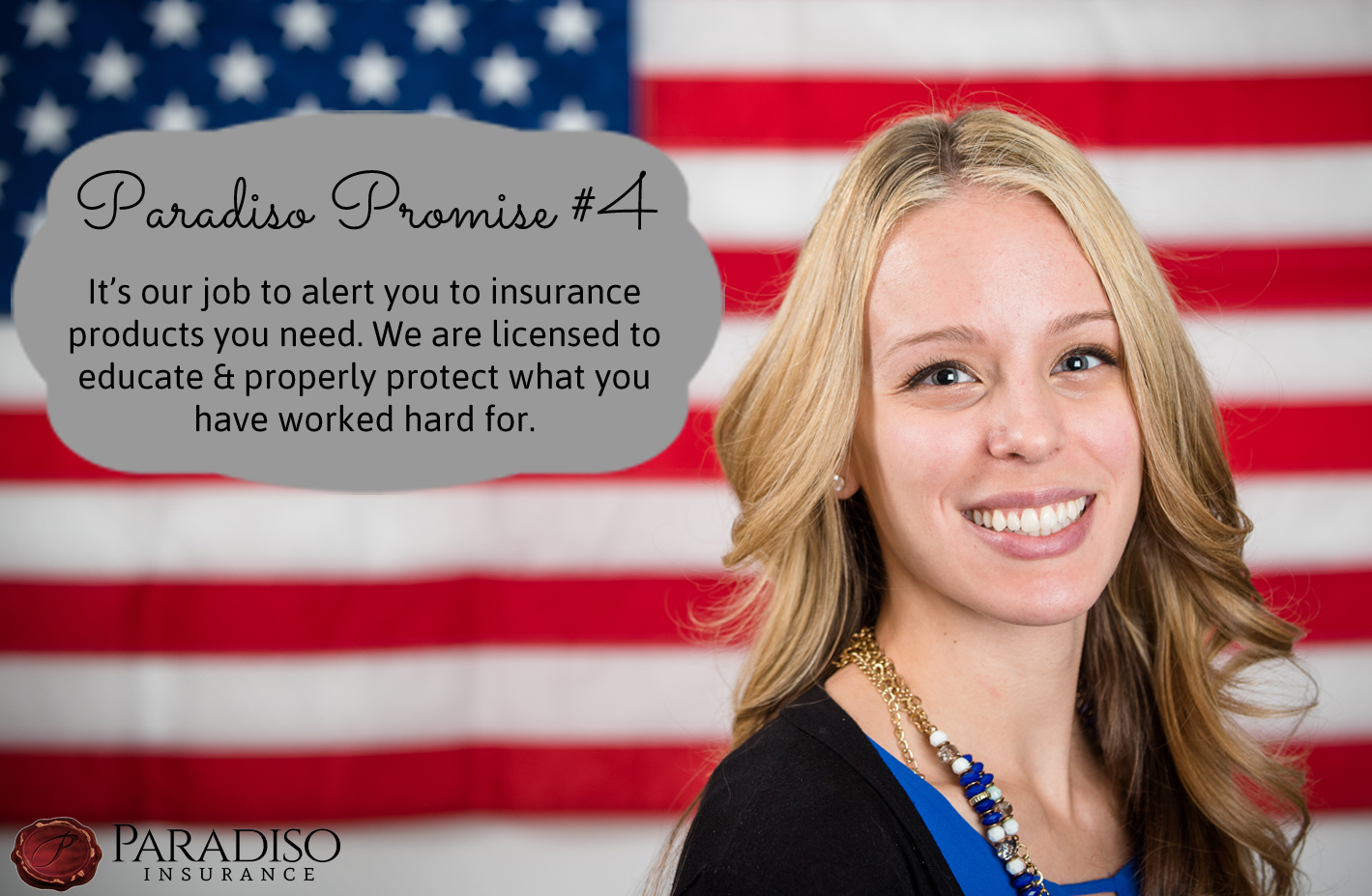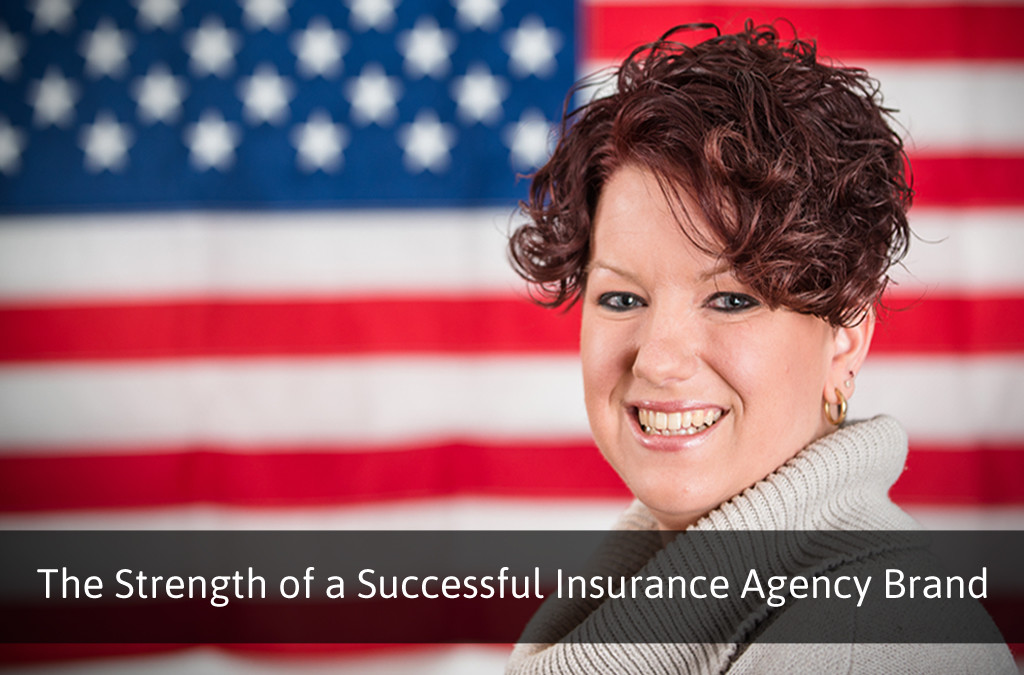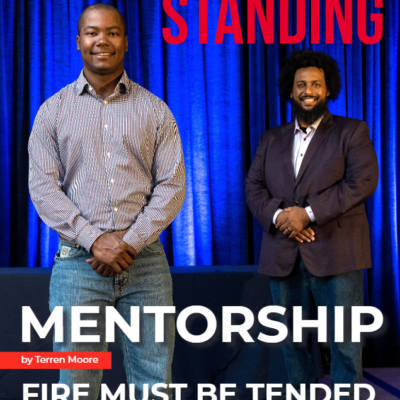Nothing’s easy about selling an insurance product that people wish they didn’t even need. While it may seem like a difficult product to sell, I’m here to tell you that the secret to your insurance agency’s success lies in the strength of your branding.
As an independent insurance professional in a highly competitive marketplace, your most valuable asset is your brand. If used correctly, your brand builds trust and provides prospects and clients with an assurance of high quality and value.What Makes an Insurance Agency Brand?
First off a brand is everything that a person feels and thinks of when it comes to your product, services, customer experience or organization. A correctly branded insurance agency will leave your prospect or client with a sense of trust. Your logos, taglines, content marketing, video marketing, mobile app, website, and brochures are ways to communicate a brand, but they are not the brand themselves. A strong brand will guide all aspects of the business, from the delivery of your insurance products and services by independent producers, to the ongoing management of the insurance agency’s operations (which is where your customer experience comes into play, in a big way).
If this didn’t already sound hard enough, consider this: today’s digitally savvy consumers expect to connect with brands and have conversations using modernized tools (such as apps, websites, etc…) that did not exist in the past. The good news is that those same consumers have developed a healthy skepticism of the expertise that talking geckos and fictional spokespeople like Flo put forth on the topic of insurance. Consumers are not fooled by a “name that price tool” or a flying pig. Instead, policyholders and prospects seek ongoing educational content ( which is why your insurance agency needs a blog) from qualified insurance experts. Customers also appreciate doing business with real people, especially when it comes to protecting their assets,mitigating risks, and avoiding liabilities.
which is why your insurance agency needs a blog) from qualified insurance experts. Customers also appreciate doing business with real people, especially when it comes to protecting their assets,mitigating risks, and avoiding liabilities.
By acting as a source of helpful information through your blog (or in person), you are more likely to be rewarded by word of mouth referrals. But let’s remember, when it comes to educational blogging please make sure you are consistent on your blog posts. According to a 2011 National Association of Insurance Commissioners report, 79% of people asked family and friends for referrals when shopping for insurance; 65% also asked colleagues and social acquaintances. Yes, social media and testimonials can play a big role in getting more referrals, so make sure to have a strategy together on how to get more referrals and how you can use them in the social world.
How to get your Agency to Stand Out
In a sea of information, how do you get your insurance agency stand out from all of the competition? It all comes back to the strength of your brand. You’ll have to avoid the common trap of mistaking a high rate of retention for having a strong brand, because that’s simply not the case. High retention rates are often a result of inertia, and worse yet, policyholders may be sticking around simply because local competitors haven’t come knocking on their doors yet! The key word is “yet,” because with billions of dollars being spent on TV ads and social media advertisements it’s only a matter of time before they are baited into calling or taking a call from one of your competitors. The million dollar question that independent insurance agents must ask ask themselves is, “How much more successful can my insurance agency become with a strong brand?” Whether you are revitalizing a brand, looking to ramp up your existing brand, or working on your own personal brand, here are a few helpful tips:
Define your brand’s promise(s). If you don’t have one, establish one.
A brand promise is exactly that: a promise from you to your clients. Here at Paradiso Insurance we have 12 Promises. If you want to keep it simple, or you think mine is too long, then you can use a single sentence. A brand promise is a clear and concise statement that explains what your brand stands for and how it connects with policyholders and prospects on an emotional level. Being able to connect at that emotional level is very important. More importantly, a brand promise implies action and gives your prospects and clients expectations. It guides the actions of your producers and CSR’s and helps with the creation of guidelines, standards. and quality controls.
To arrive at a meaningful agency brand promises, you must start with non-differentiating functional features (e.g., cheap rates, low and competitive rates, great customer service) and ladder up to the emotional, spiritual, and cultural values that form the backbone and the foundation of all strong brands. This will involve asking a series of questions designed to get to the “why” and the “what” (why do business with our agency and what separates us from our competition), because your value needs to be targeted to a specific audience.
Identify the insurance agency’s brand touch-points.
Your brand is only as strong as its weakest link. In other words, your brand is the sum of every interaction that you have with the outside world, whether it’s with a client or a prospect. Each one of these interactions are touch points, and each of these touch points should reinforce your brand promise.
Only by identifying all your high-impact touch-points can you begin to develop a plan for managing them. Yet, far too few independent insurance professionals and their agencies have a formal brand touch point plan in place. Let’s ask a question: does your insurance agency have a digital customer experience in place? If not, why? With a digital customer experience, it can and will lead to some unfortunate “brand breakdowns” along the way. Start by creating a brand touch-point wheel with what’s important to your agency. Here’s a quick example: It was very important to educate each and every client with every policy we offer here at Paradiso Insurance, so we included it in our digital customer experience. We also felt it was very important to include our agency mobile app and a survey of how we performed for you during your buying experience. You need to include what’s important to you and your insurance agency, while keeping your customers’ interests in mind, first and foremost.
Communicate, and do it with consistency.
Strong brands don’t happen overnight. Look at Apple and what they went through the past 15 years. What strong brands require is a long-term commitment with a clear and consistent communication strategy. In the digital age we live in, they also require a basic understanding of the power of strategic (have a plan), optimized content (Search Engine Optimized content, also called SEO); the type of content that educates, but also entertains, while building your insurance agency’s brand awareness and generating word of mouth referrals.
To put your best foot forward, create a brand content calendar that lays out your communication activities (both digitally and traditionally) for the next four to eight weeks. Once you do that, ask yourself these questions: What is your area of expertise? What is your unique point of view? What is your value proposition? After answering those questions, you must look at what content is better in the traditional format versus the digital format. Content calendars can take different shapes and forms, but it’s good to start with a list of high-level priority topics and themes that can be adapted to different formats. It also helps to schedule ongoing brand-building activities, like weekly blog posts (which should be two times a week), tri-weekly Facebook posts, and LinkedIn posts as well. This provides structure and accountability for tasks that often get pushed to the back burner. Stay focused, and remember, consistency is key to your success.
The Final Word on Branding
At its most basic, branding is about connecting. Connecting our insurance agency’s values and beliefs to those prospects and clients, and of course they are backed up with a great customer experience. Yes, as independent insurance agents, we have a unique position to build solid relationships of trust, and we also have what our competition (direct writers) don’t have – options and choices. The independent insurance agency is the best option for our prospects and clients, but we need to do a better job telling them WHY.






This paragraph presents clear idea in favor of the new viewers of blogging,
that genuinely how to do blogging.